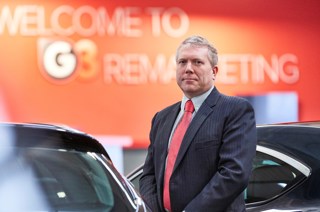Law firm Howes Percival is warning employers considering a ‘no jab, no sick pay’ COVID-19 policy to seek legal advice before instigating any changes.
Depending upon employees' existing entitlement to company sick pay, such a policy could amount to a breach of contract if staff have not been consulted over the change, it has said.
The firm said that different isolation period rules mean that employers will potentially have to pay more to unvaccinated workers than vaccinated ones if they need to cover longer periods of sick leave.
 Matthew Potter, partner and employment law expert at Howes Percival, said: "COVID-related staff absences have put some organisations under intense pressure, leading them to introduce new sick pay policies relating to staff required to self-isolate.
Matthew Potter, partner and employment law expert at Howes Percival, said: "COVID-related staff absences have put some organisations under intense pressure, leading them to introduce new sick pay policies relating to staff required to self-isolate.
“Previously, self-isolating employees were entitled to the business's enhanced sick pay, (not just SSP) regardless of their vaccination status.
"However, the new policies state that unvaccinated employees (without mitigating circumstances) who have not tested positive for Covid but are forced to isolate because they have been in contact with someone who has, will only receive SSP in future.
"Unvaccinated staff may argue that reducing their sick pay is discriminatory, but if a business can prove that the policy is a proportionate means of ensuring they have adequate staff levels then this argument may not present an issue.
“Depending upon the existing entitlement to company sick pay and whether it is discretionary, any such change could amount to a breach of contract if staff have not been consulted over the change. Employees might even resign and claim constructive unfair dismissal."
The warning follows a change in the Government's COVID self-isolation rules, which require different isolation periods depending on an individual's vaccination status.
However, the Government recently announced the end to COVID-19 Plan B measures, suggesting that the end may be in sight for self-isolation.
News of the changes in England are likely to be welcomed by car retailers who have found themselves facing a “staffing crisis”, partly due to COVID-prompted absences.
A poll conducted by AM earlier this month found that a quarter (25%) of UK car dealers had emerged from the festive break with staff absence of over 15% as the Omicron variant of COVID-19 continued to grow cases.
Howes Percival said in its guidance on any change of employment terms that if a company intends to dismiss and re-engage staff and they do not accept a change to company sick pay entitlement, and there are 20 or more employees at any location or site, it could trigger the need to enter collective consultation of 30 or 45 days.
Before making any changes to sick pay arrangements, employers should seek advice and consider both the current position as set out by the Equality and Human Rights Commission and ACAS, it said.
Potter added: "Employers considering following suit will need to be able to objectively justify the proposed change and ensure they engage and communicate sensitively with their staff.
"There are various reasons why some people are unvaccinated - including medical conditions, religious belief, age and pregnancy, so a blanket ‘no jab, no company sick pay' policy is inappropriate.
"Taking individual circumstances into account will also help companies avoid costly discrimination claims."






















Login to comment
Comments
No comments have been made yet.